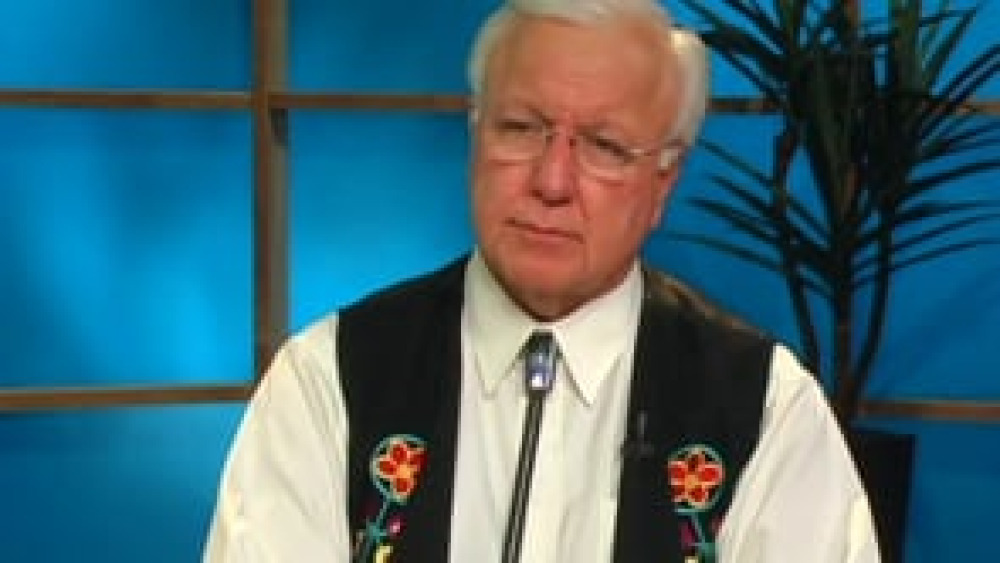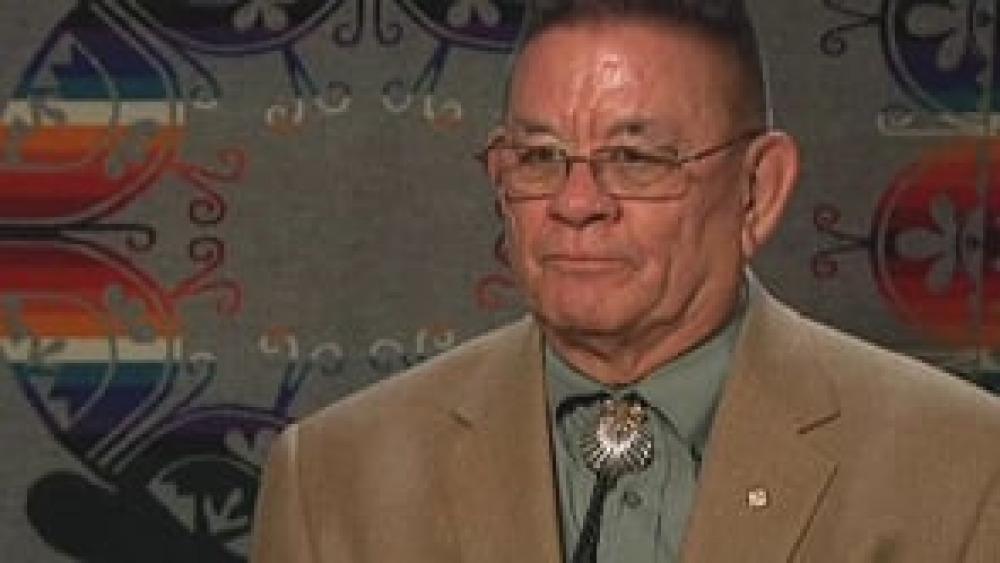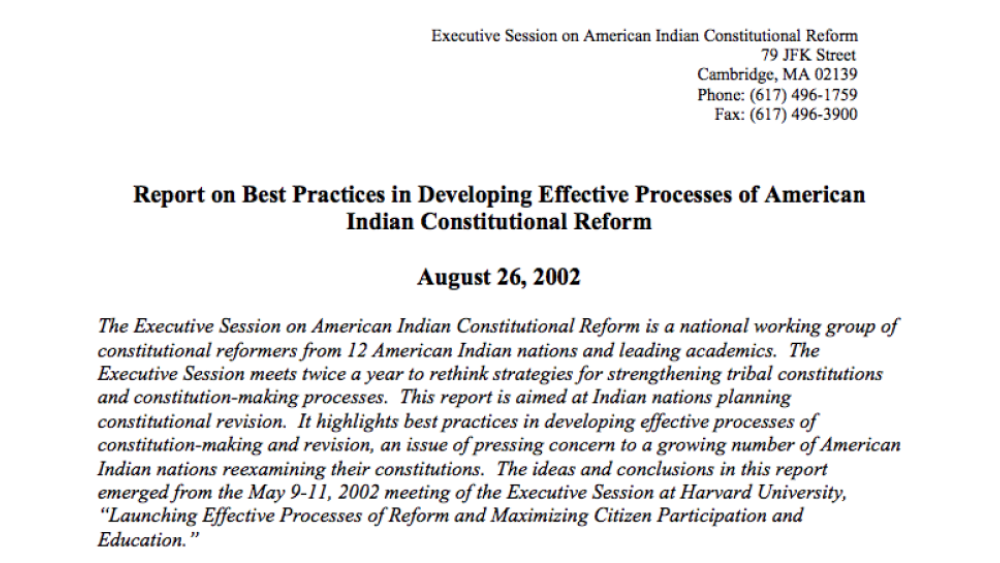Frank Ettawageshik, Joan Timeche and Frank Pommersheim discuss the importance of constitutional legitimacy to effective Native nation governance, and stress that the source of that legitimacy is the very people a constitution is designed to serve.
Additional Information
Ettawageshik, Frank. Native Nations Institute for Leadership, Management, and Policy, University of Arizona. Tucson, Arizona. April 6, 2010. Interview.
Pommersheim, Frank. "A Key Constitutional Issue: Dispute Resolution." Tribal Constitutions seminar. Native Nations Institute for Leadership, Management, and Policy, University of Arizona. Tucson, Arizona. May 1, 2012. Presentation.
Timeche, Joan. "Constitutional Reform: A Wrap-Up Discussion (Q&A)." Tribal Constitutions seminar. Native Nations Institute for Leadership, Management, and Policy, University of Arizona. Tucson, Arizona. May 2, 2012. Presentation.
Transcript
Frank Ettawageshik:
“Clearly, an inadequate governing document can be a huge hindrance towards the development of good, of proper governance. I mean it can be really a real problem and it needs, you do need to have a good constitution for your government. Now that constitution in some cases may not be written, but nevertheless you need to have a system of governance that’s in place that the society understands and that your tribal citizenry understands and is able to use and that they feel comfortable with. Otherwise you can’t impose a system that, for instance, is not, that may be a good idea somewhere but may not be a good idea in your community. You can’t do that. You have to have something that works.”
Joan Timeche:
“We have 12 autonomous villages [at Hopi] and within these villages they control all of the land, they make all of the decisions within their area of jurisdiction, and here comes in the federal government that imposes upon us a constitution. We were one of the IRA [Indian Reorganization Act] tribes that in 1936 we approved the constitution. But like as you heard many other speakers here, our people did not go and vote. They voted with their feet, which meant that they stayed home, because that election that the Bureau of Indian Affairs was conducting was not their form of how we make decisions. Ours was based on clan hierarchy. We were a traditional culture and so all of our leadership was elected and appointed in a different way, and it wasn’t a democracy as this IRA constitution was putting us into. So we had these 12 villages. So if you look at what was happening out on Hopi, if you look at the 12 villages, for many, many years after 1936, only eight of those villages decided that they were going to recognize the constitution, and four of them did not. And one of those villages had probably about one-eighth of the nation’s population, and today still does not recognize it, so they’re not represented in council. I’m not represented either, because I come from a traditional village, the village of Old Oraibi. So there are probably about, we have population today of 12,000. I would guess that probably a quarter of our population is not represented effectively on council because we say, ‘That’s a foreign government, that’s the pahana’s form of government.’”
Frank Pommersheim:
“Legitimacy comes primarily from the people. Tribal citizens who need to be consulted and hopefully participate directly and often in developing their constitution and/or amending that constitution when it’s necessary. Because I think the ultimate source of power for any sovereign is ultimately not really in the government but in the people. Because the thing that’s often left out when we talk about or learn about the United States Constitution in basic civics is the power comes from the people, and the people reserve that right to make changes in the Constitution, to amend it, to bend it however necessary to meet contemporary standards. And so my understanding in working with tribes in South Dakota that they have basically the same view is that the power is ultimately in the people, not in the government. And so one important component of legitimacy comes from the people. So when a constitution is being discussed and when it’s ultimately voted on, how many tribal people are participating?...So this thing about legitimacy is absolutely essential, because it will happen -- and I’m going to give some examples in a minute -- that tribes are faced with very difficult questions, and the notion is, once a decision has been made, a tribal constitutional decision has been made, is there enough legitimacy -- that as Joe was suggesting -- if you’re on the side that lost or if you’re on the side that doesn’t like the result, because it’s legitimate, will you accept a decision that you disagree with? It’s easy to accept decisions that you agree with. That’s easy. We can all do that. But it’s very, very difficult sometimes for citizens, particularly when a constitution is new, is to be able to accept decisions that you disagree with. That’s what legitimacy is. It means that the constitution and its values and its structures are more important than your individual feeling or the feeling of any particular group with the tribe. Because without a sense of legitimacy, constitutions are just a bunch of false promises, and I guarantee that to be true. If a constitution doesn’t have legitimacy, it’s false, because as soon as the tribe faces its first most difficult decision, if there’s not legitimacy, the constitution will be finished. Because the constitution really only works, any constitution only works is because it’s legitimate.”



